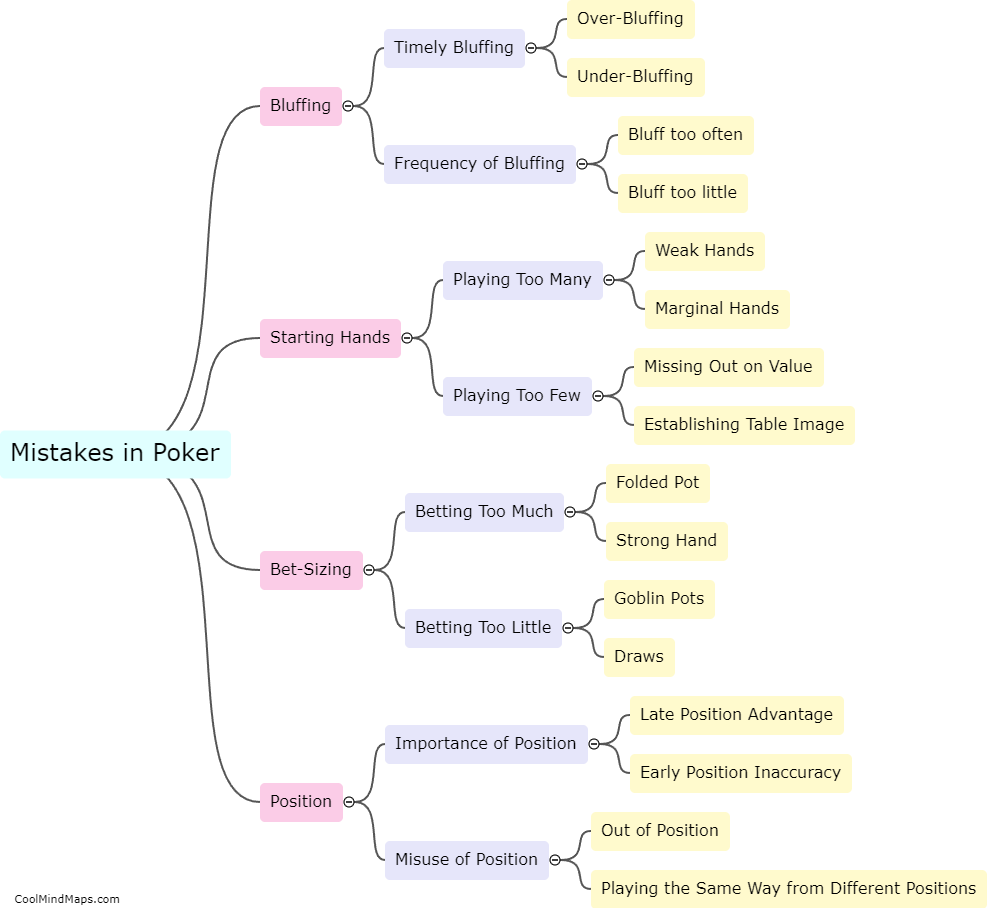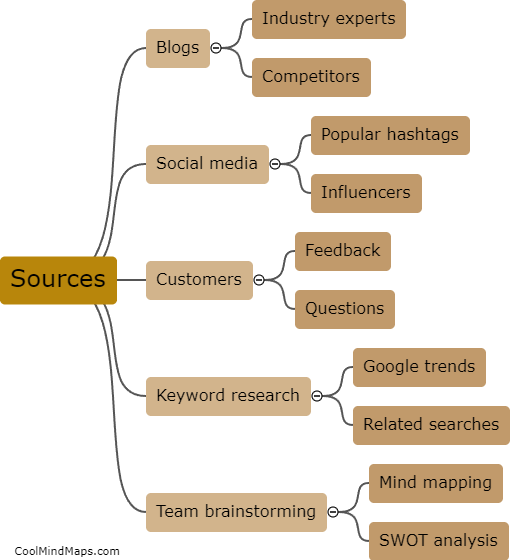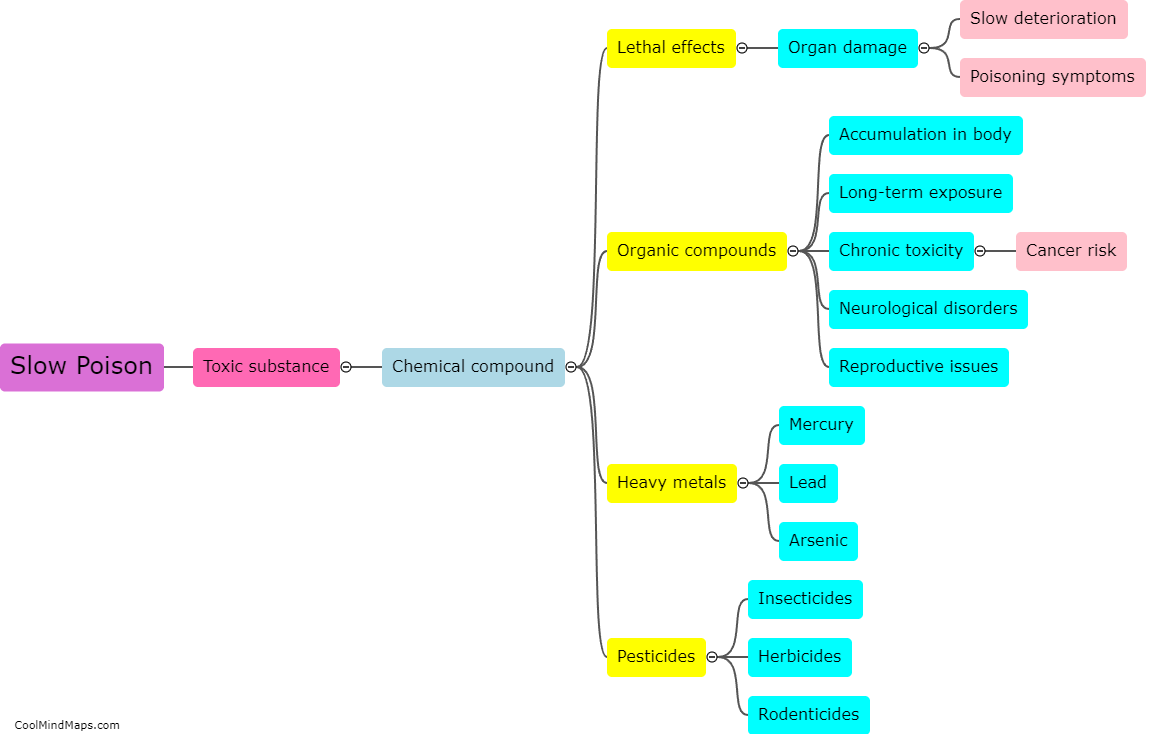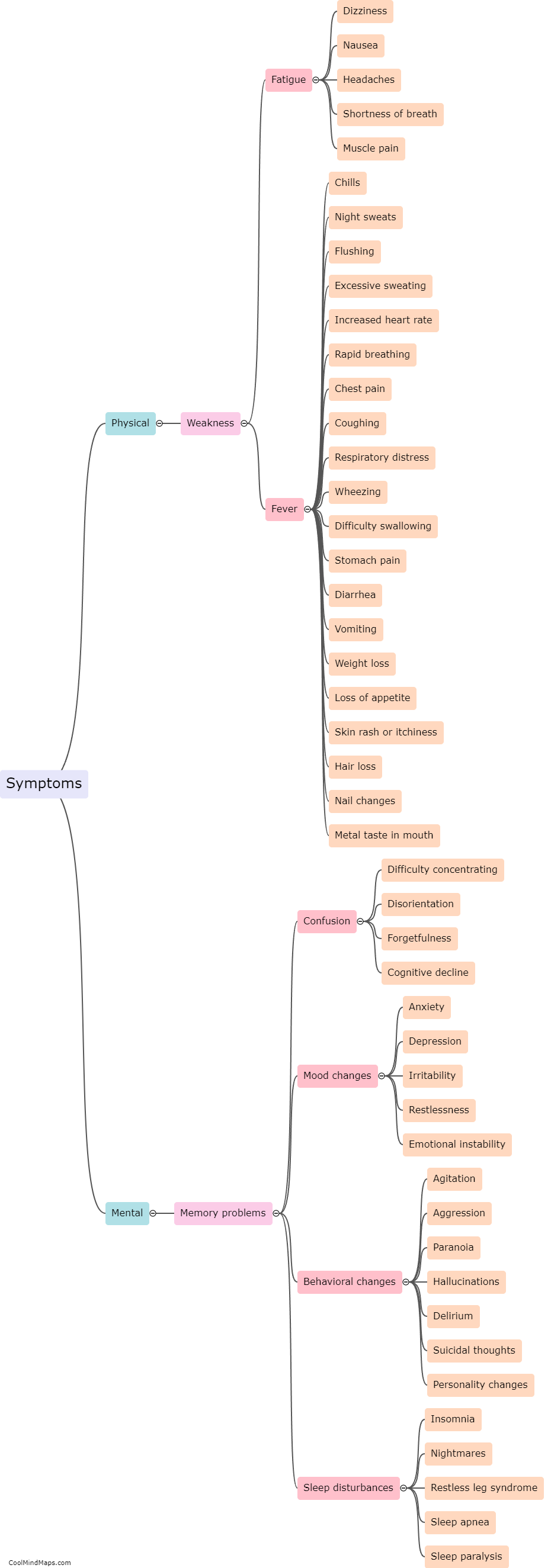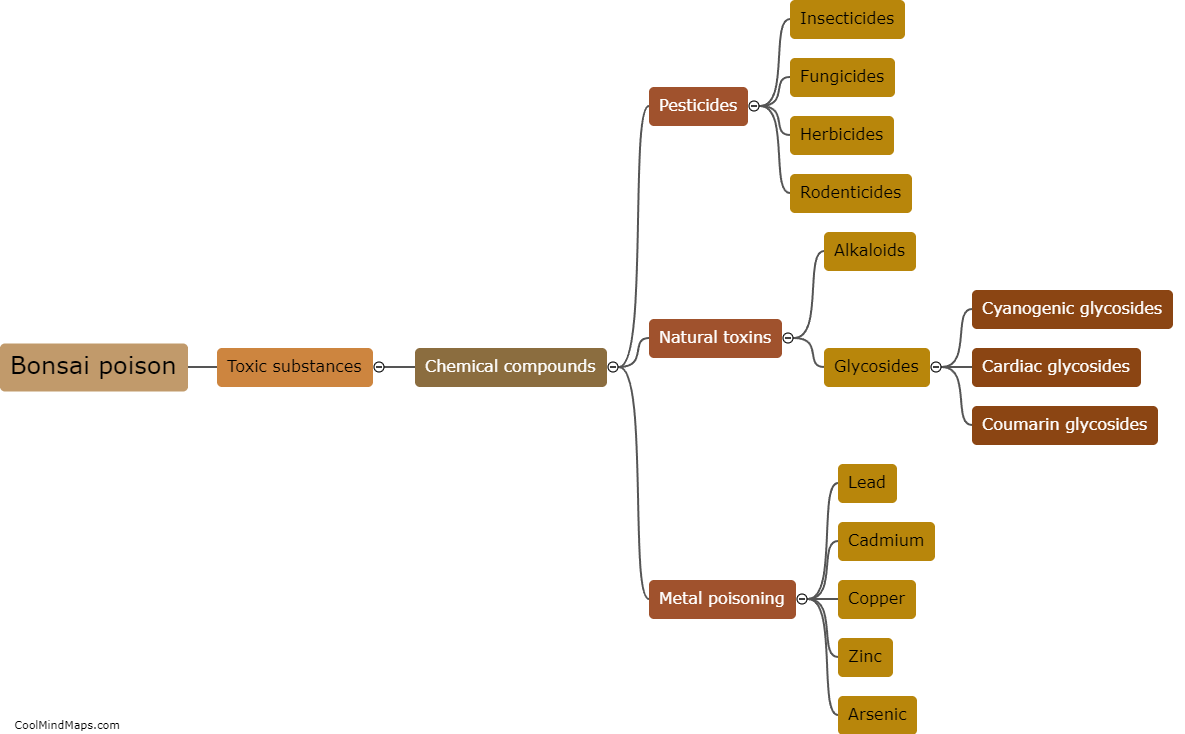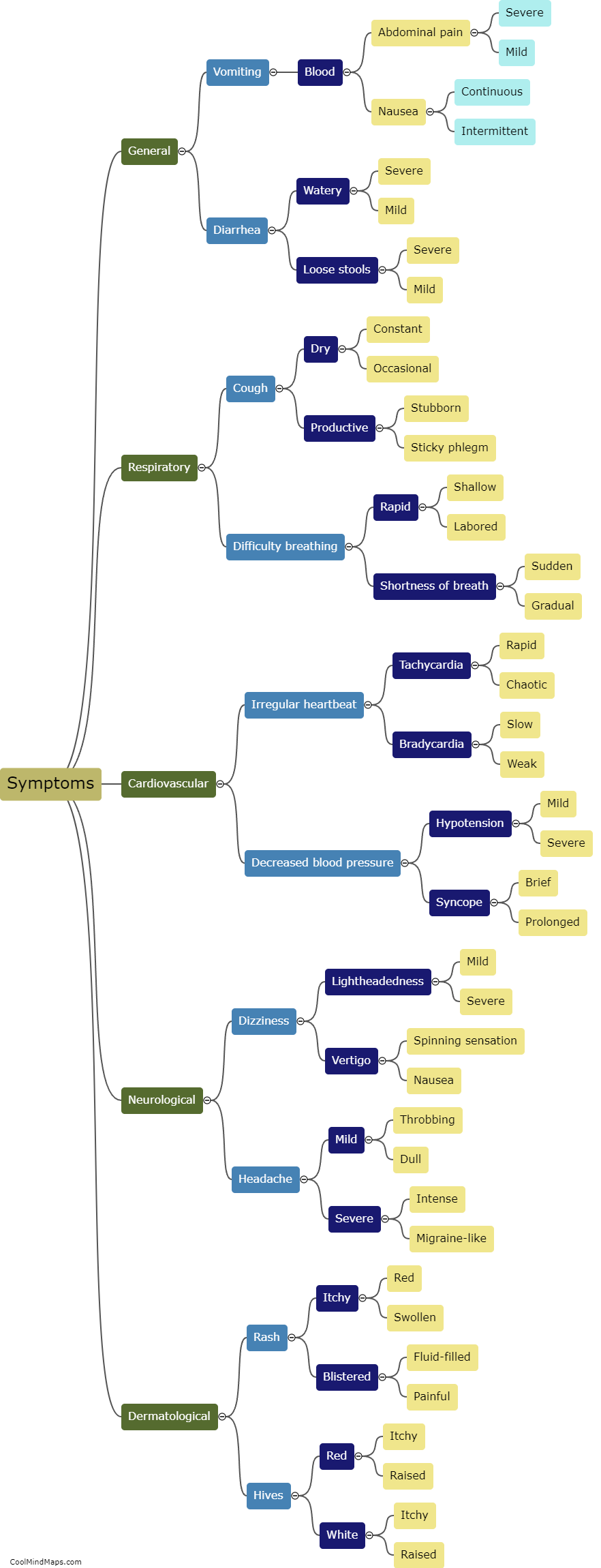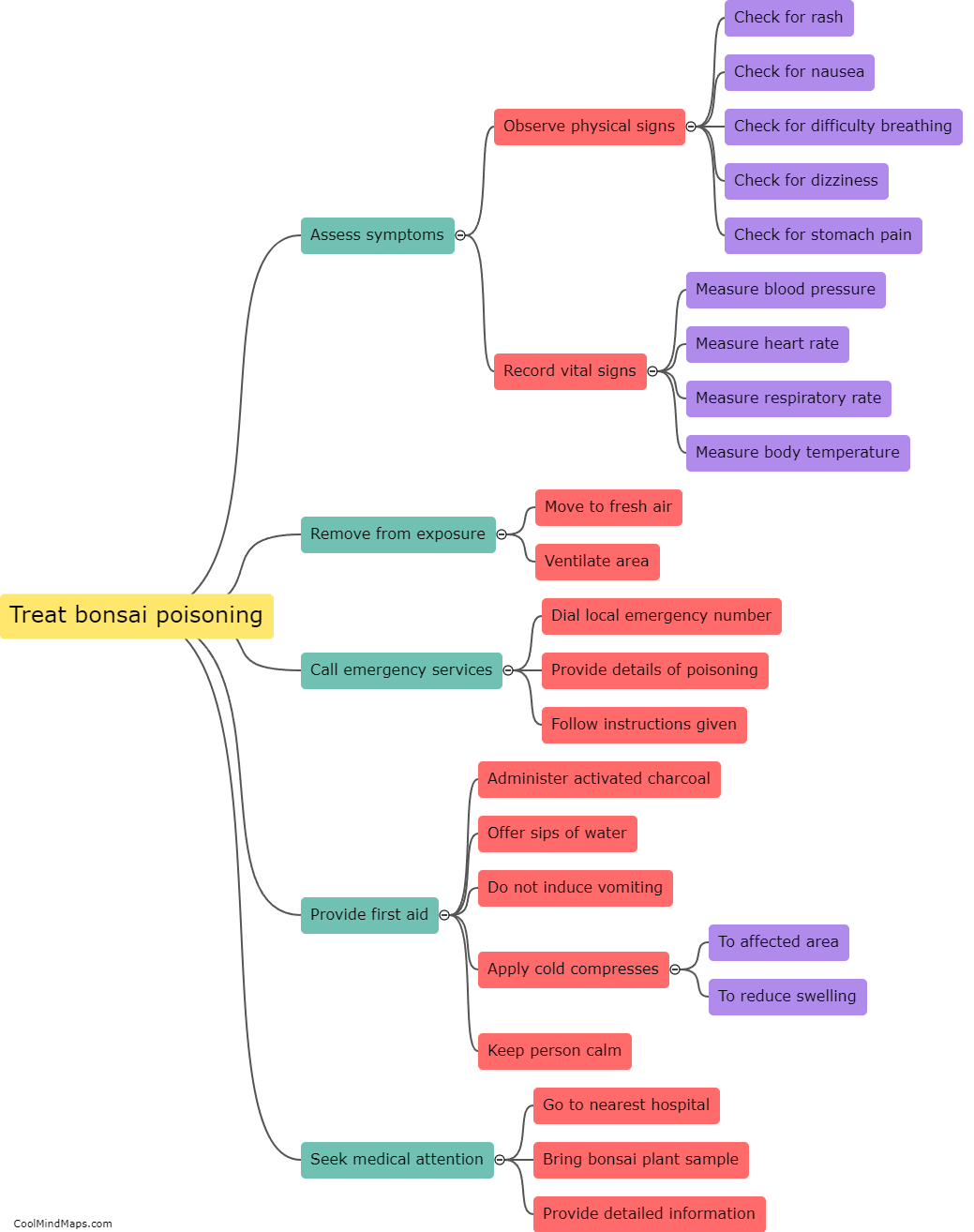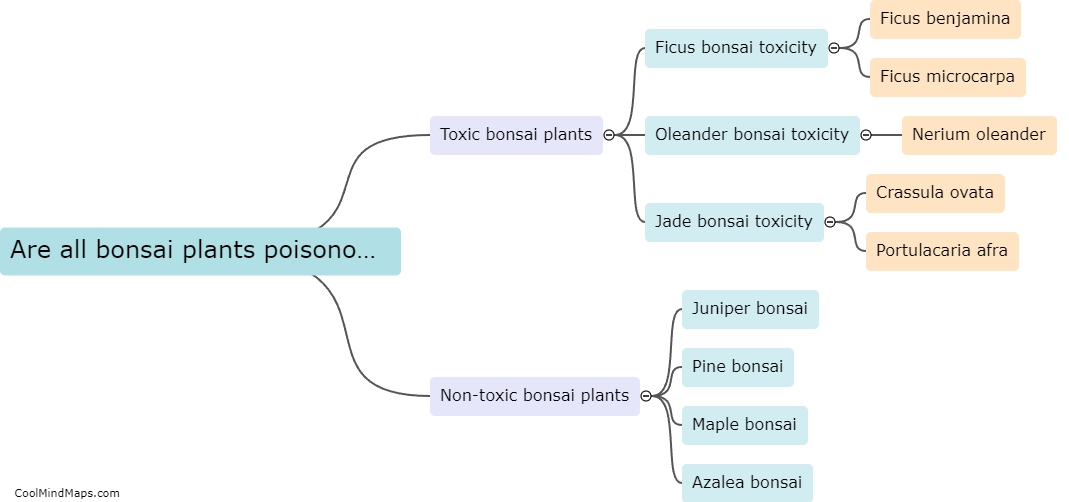How can slow poisoning be detected?
Slow poisoning, also known as chronic poisoning, can be challenging to detect as its symptoms can be subtle and easily mistaken for other health issues. However, there are certain signs and symptoms that may indicate its presence. These include recurring unexplained nausea, vomiting, headaches, weakness, fatigue, dizziness, muscle and joint pain, and sudden weight loss. In some cases, chronic exposure to poisonous substances may also lead to behavioral changes, such as anxiety, depression, or irritability. If someone suspects slow poisoning, they should consult a medical professional who can conduct a thorough evaluation, including specialized tests and examinations to confirm and identify the specific toxin responsible. Additionally, gathering information about the individual's environment, such as any potential exposure to harmful substances, can aid in the detection process.
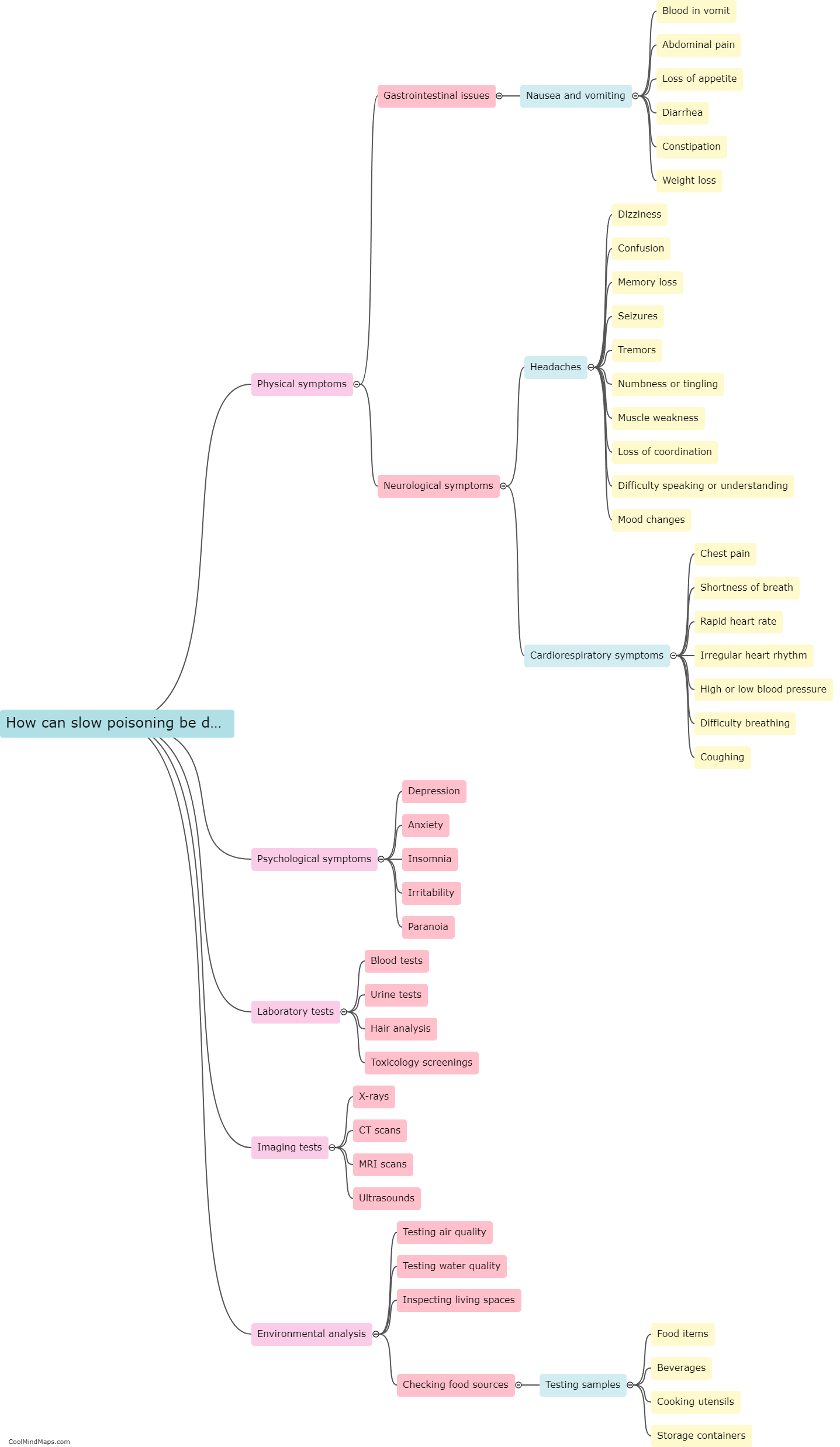
This mind map was published on 19 December 2023 and has been viewed 77 times.


